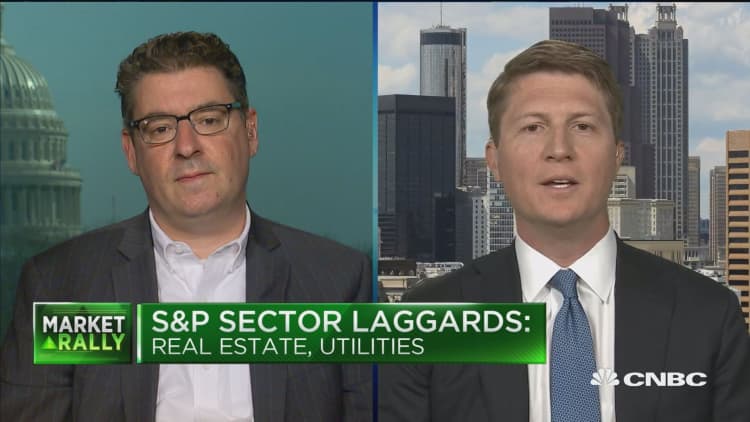
Buying a home just got a little more expensive.
Mortgage rates, which loosely follow the 10-year Treasury, hit their highest level since the end of March, breaking out of a tight range where they had been sitting for weeks. The move came as bond yields surged higher.
While the increase won't mean a lot in terms of the average monthly payment for a homebuyer, it could be signaling the start of another steady rise, which we saw at the start of this year.
"Rates are in the midst of a serious, threatening move higher," wrote Matthew Graham, chief operating officer at Mortgage News Daily. The bond yield surge Thursday "brought additional confirmation of the end of the friendly springtime consolidation trend, and it took us one step closer to the highest yields in more than four years."
As the average rate on the 30-year fixed moves past 4.6 percent, talk of 5 percent comes back into play, and that is an emotional barrier for both buyers and sellers.
Impact on millennials
Millennials are now the largest homebuying cohort, but some are still struggling with the decision to continue renting or jump into homeownership. Rising rates have an outsized effect on this young generation, because they have a very high level of student loan debt and were underemployed out of college, leaving them with less savings.
The vast majority of millennials say rising rates will impact their home search, forcing them to either look for smaller or less expensive homes, change neighborhoods or increase their monthly mortgage budget, according to a recent survey by realtor.com.
"Existing debt and lower down payments leave younger shoppers more exposed than others to the impact of rising mortgage rates and record-high home prices," said Danielle Hale, chief economist for realtor.com. "These obstacles won't prevent millennials from finding and buying homes, but most will have to adapt to these challenging market conditions by adjusting their home search."
Supply crisis could get worse
Higher rates could also exacerbate the current supply crisis in the housing market. Sellers will have less incentive to put their homes on the market, because most have near-record-low rates and would be buying into significantly higher rates. The market desperately needs more homes, especially entry-level homes, where sellers would be moving up.
In addition, home prices took their biggest jump in four years in March, due to that tight supply. As home prices rise, buyers have less padding in their pocketbooks for higher mortgage rates. Most buyers focus less on the overall price of a home and more on what the monthly payment will be. That is far more dependent on interest rates.
Buyers are starting to take advantage of the lower rates offered by adjustable-rate mortgages. The ARM share of mortgage applications increased last week, along with a significant jump in overall applications to purchase a home.
ARMs are a slightly more risky option, because they will adjust over time, but today's ARMs are nothing like the ones underwritten during the heady days of the last housing boom, when lenders often required no down payments and no documentation. Today's ARMs are fully underwritten with much tougher standards.
WATCH: A lot of demand for residential mortgage credit



